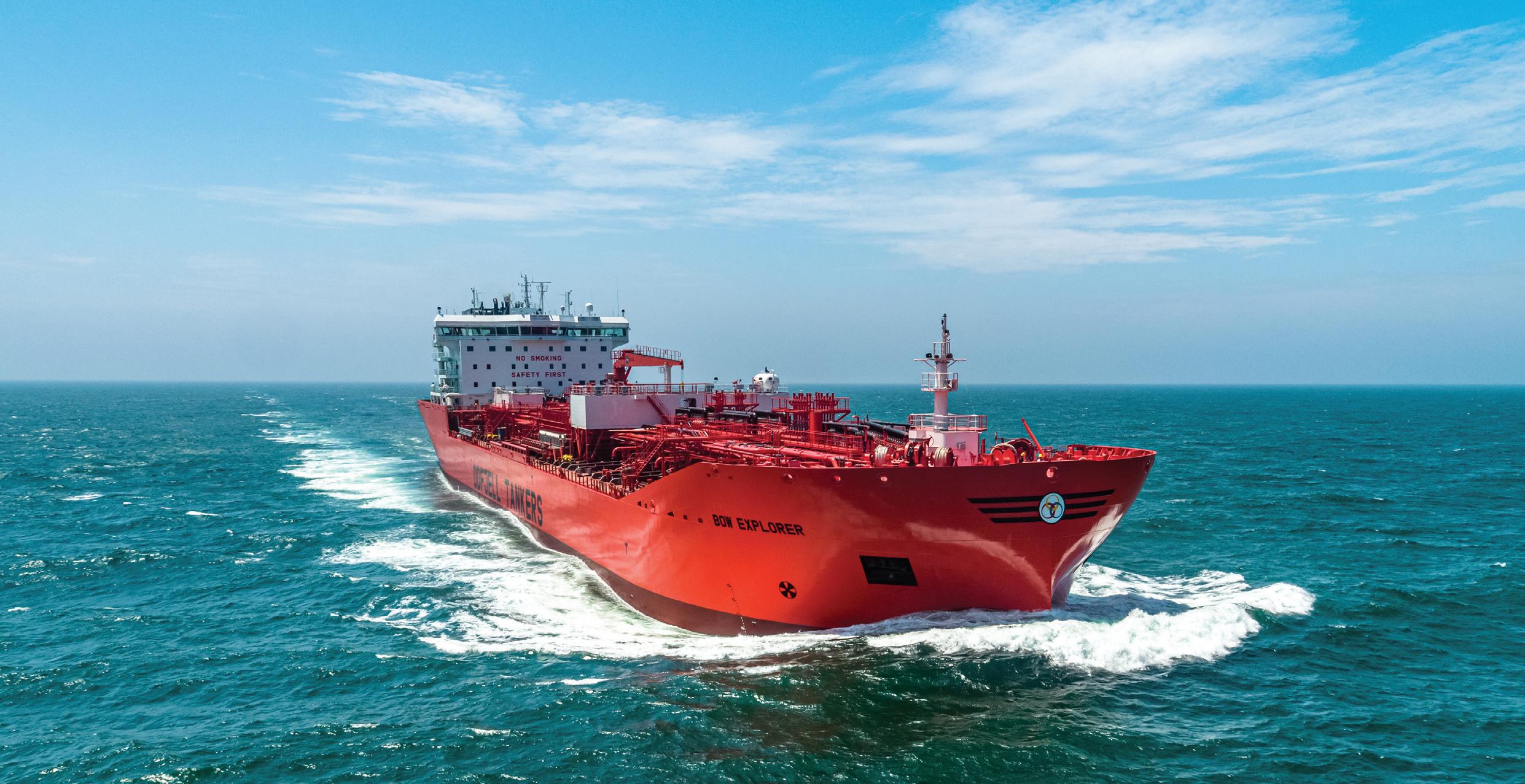




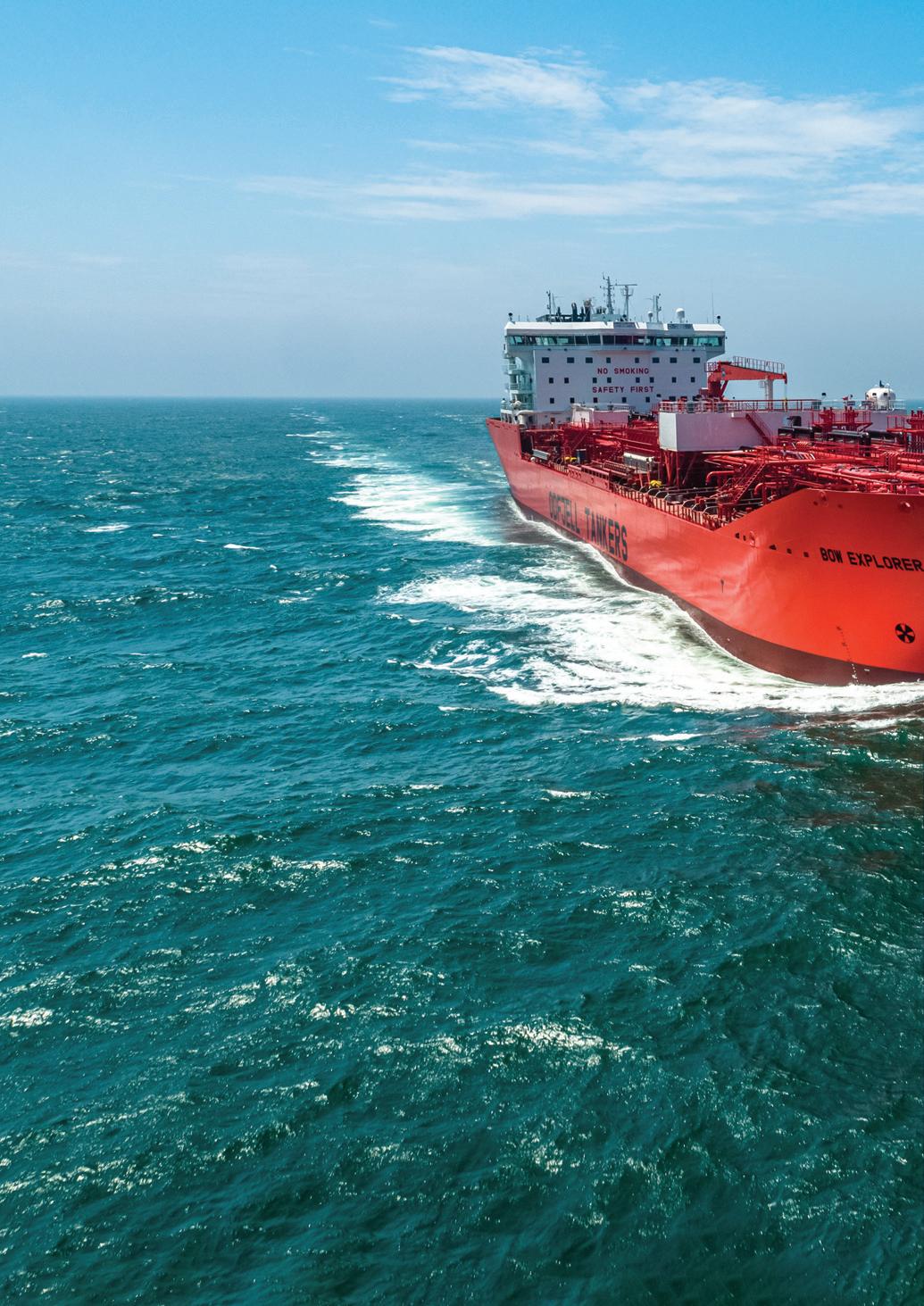







Odfjell SE is a world leader in the global market for seaborne transportation and storage of chemicals and other specialty bulk liquids. As an international outfit, the company takes a holistic approach to sustainability, treating it as a key part of its corporate social responsibility. Hannah Barnett spoke to Chief Sustainability Officer Øistein Jensen to learn more.
Jensen is pragmatic about the environmental footprint a business like Odfjell, alongside the wider shipping sector, has on the environment. The company’s impact statement recognises both the positive and negative impacts of the industry.
“We know our ships emit a lot of CO2, but shipping is also the most environmentally friendly way of transporting large volumes

over big distances,” Mr Jensen explained. “90 per cent of the goods we use every day have been transported onboard a vessel, it’s a global business. That means that we need to take a holistic perspective and look at our footprint in the total value chain. Odfjell is an organisation that is willing to go beyond; we set ambitious targets – and we provide impressive results.”
As a global company with 2,303 employees across 13 international locations,
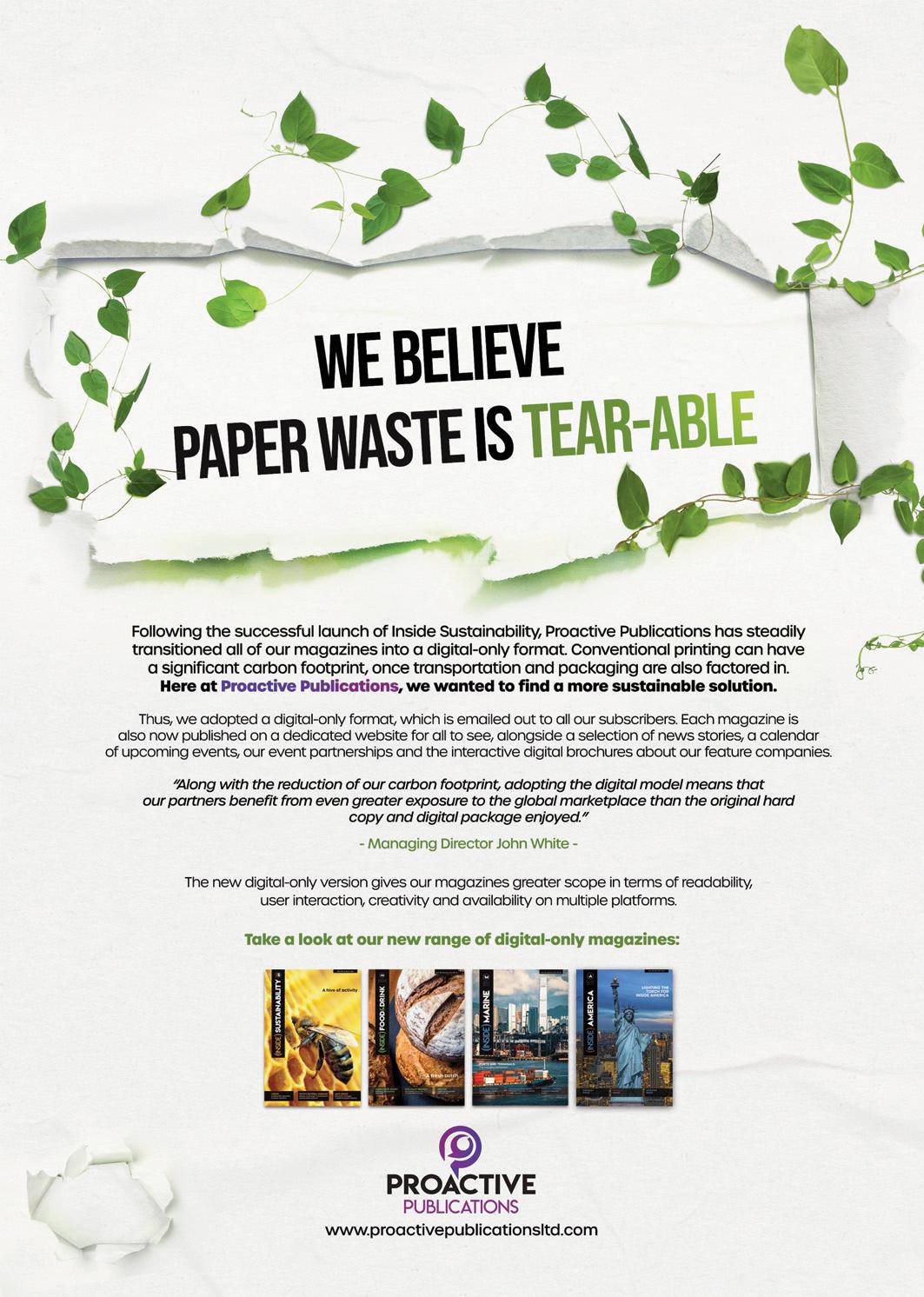
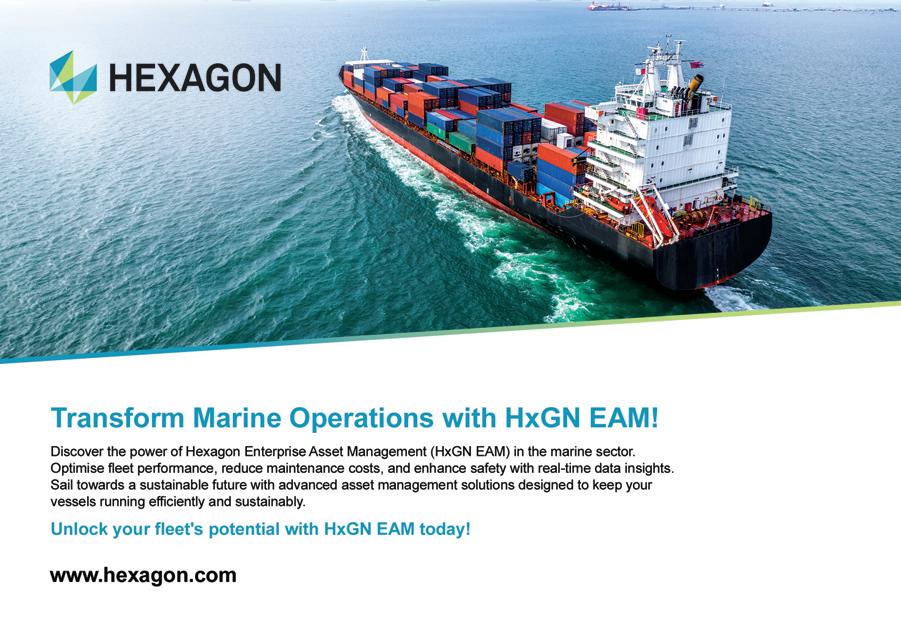


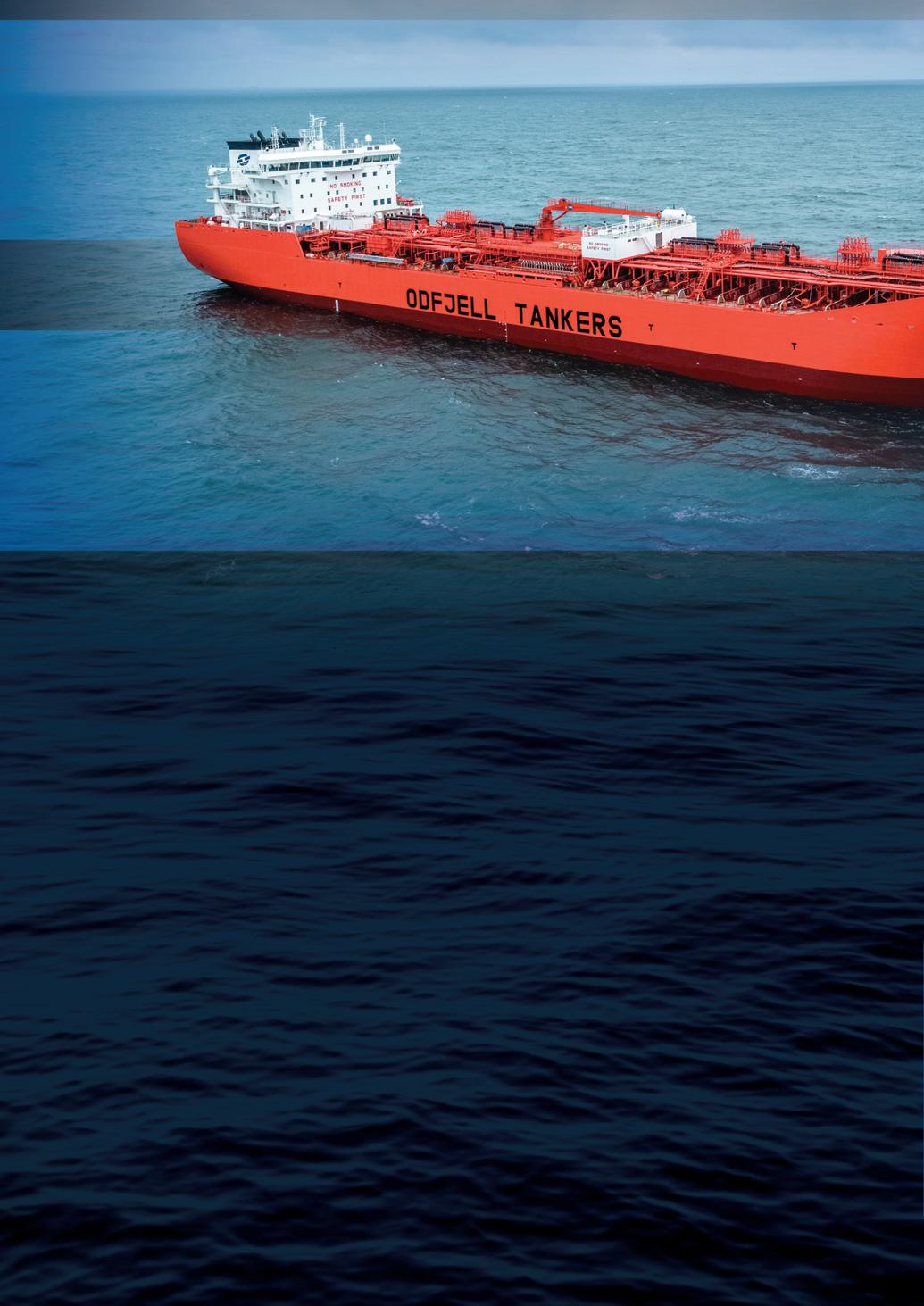
Odfjell is based in Bergen and listed on the Oslo Stock Exchange, recording $1.19 billion in gross revenue last year. The company celebrates its 110th birthday this year, making sustainability a pertinent issue.
“We want to be around for another 110 years, at least,” said Mr Jensen. “Odfjell takes responsibility for the brand and our activity around the world. This includes accountability towards our customers, stakeholders and the silent stakeholder: the environment.”

Odfjell is focused on sustainability reporting that takes in the full scope of ESG, in line with the Corporate Sustainability Reporting Directive (CSRD). “We have been one of the most transparent shipping companies on sustainability for the last year, though there is still work to do,” Mr Jensen reflected.
In 2020, the company set ambitious climate targets like a 50% reduction in the carbon intensity of its owned tanker fleet by 2030, compared to its 2008 IMO baseline. It achieved that by 2023, as verified by the DNV. The company is now in the process of setting new targets, including developing a transition plan to be carbon neutral by 2050, at the latest.
New aspirations come with new challenges. “We need to design a ship that’s going to last for 30 years and has the capability to be carbon neutral,” said Mr Jensen. “We have also invested in our terminals, and we want to continue to improve reporting there, in collaboration with our partners.”
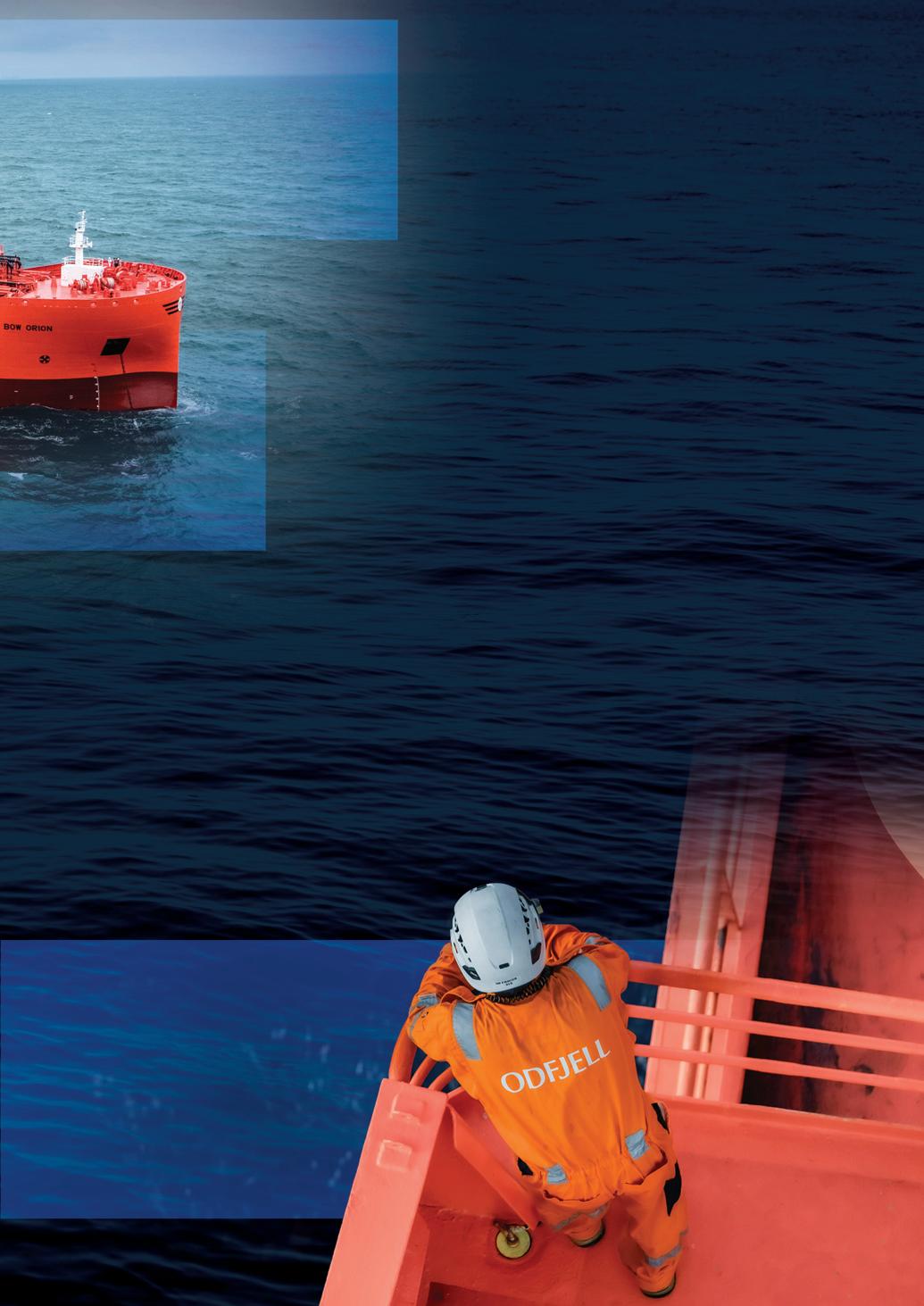
A level of reporting as sophisticated as Odfjell’s has helped the company be attractive to a skilled workforce. “People select us because they can go to our website and see our values and targets,” Mr Jensen added. “It’s difficult to calculate the KPI’s of all our efforts on sustainability, but I think realising that it is a factor in recruiting talented colleagues is a significant added value.”
Mr Jensen’s own role in the company has shifted in line with the company’s renewed focus. Back in 2020, he was the Chief of Staff, until it became apparent that sustainability required a more clearly defined role.
Rather than recruit, it made sense to appoint from the top, Mr Jensen said: “We set a clear intention that sustainability is something that we place high on the agenda.”
One of the most significant steps Odfjell has made so far was the establishment of a Sustainability-Linked financing framework in 2020, linking financing to its climate targets. In 2024 Odfjell launched a Transition Finance Framework. This serves as a strategic roadmap for the company’s investments in emission-reduction activities and ensures that funds invested go to projects linked to the transition plan. Odfjell was the first company in the Nordics to adopt such measures.
“The Sustainable Finance Framework allowed us to access money that was not
otherwise available,” explained Mr Jensen, “because we met with investors that didn’t initially want to invest in the shipping sector, because of its footprint. But they did invest with us, because of the sustainable finance element.”
The company recently appointed its first female captain, Lise Henriksen. She joined Odfjell as a Deck Cadet in 2010 and rose through the ranks.
“It’s not as if there was a decision before to not have a female captain, but it’s about availability,” said Mr Jensen. “Like many other roles in the shipping industry, there aren’t that many women applying for them, so we need to start building from the early stages. Lise is qualified like any of our male colleagues, and she’s a great role model for others.”
“Diversity is not just about gender, it’s also about diversity of thought. It’s about having
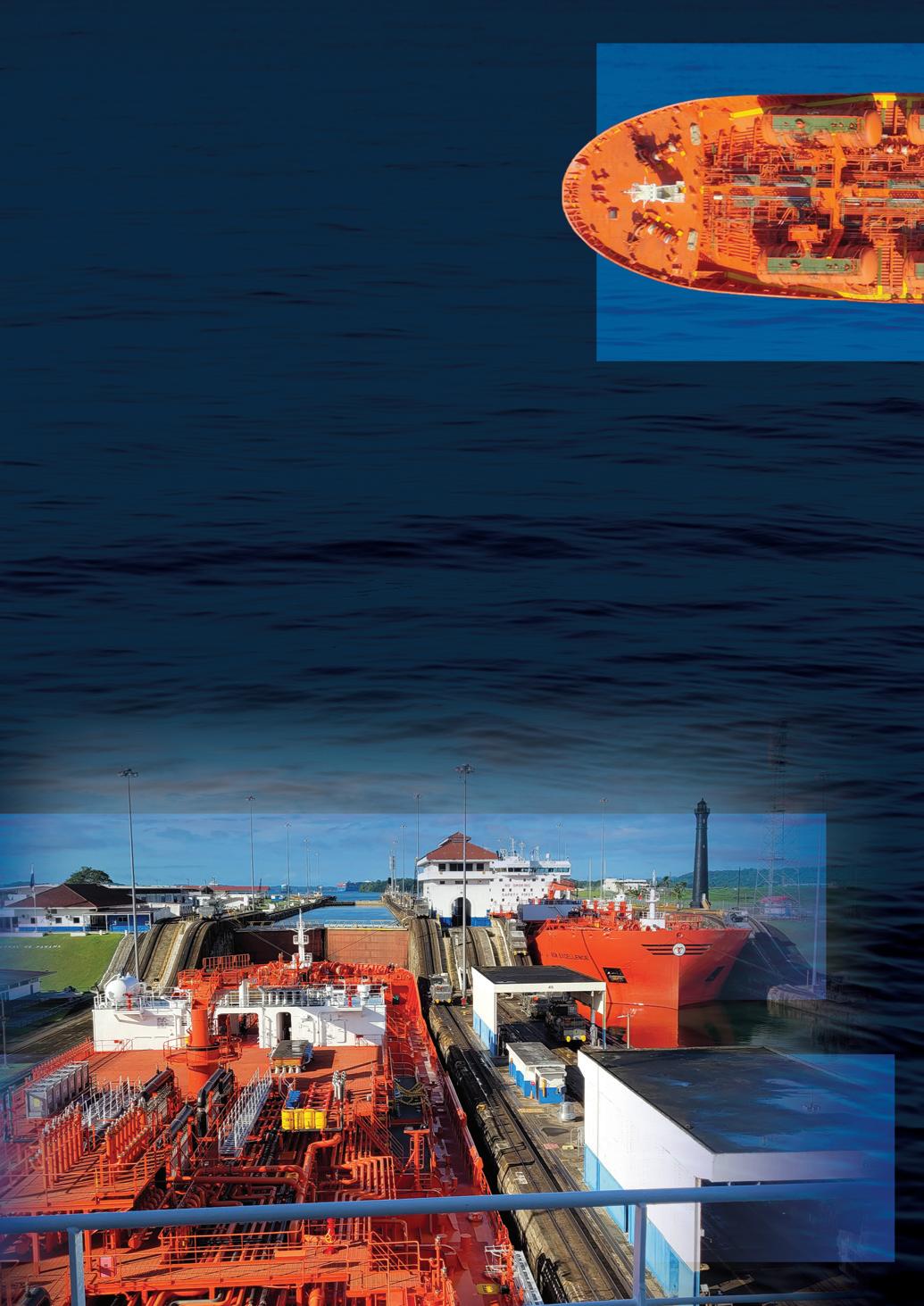
access to the wider population to make better decisions. It means calling on different people, so we can address projects and challenges from a variety of angles.”
Norway is subject to the Norwegian Transparency Act, which demands traceability on a company’s impact, both environmentally and in the protection of human rights.
“Access to a sustainable climate and safe working conditions is a basic human right,

so the Transparency Act requires us to do due diligence on our suppliers,” Mr Jensen explained. “We are now screening suppliers related to ESG. To reduce the risk of us buying products with a bad footprint, whether that's in terms of environmental aspects or human rights, we need to screen how the products are sourced.”
Additionally, Odfjell is now measuring its Scope 1, 2 and 3 emissions. That means also asking suppliers to provide information on their direct emissions, as the company now must do for its own customers.
“Obviously, our Scope 1 is our customers’ Scope 3,” Mr Jensen added. “I think this connection through the value chain is going to be more and more important, as the CSRD requires disclosure of Scope 3. So, we have done lifecycle emission assessments of our vessels, and we are working with our biggest suppliers to see how they can also reduce their emissions on the products we buy.”
The company is already directly impacted by climate change. Mr Jensen revealed that flooding in Brazil and tornadoes in Houston recently affected Odfjell staff in the same week. In addition, a drought in the Panama Canal has meant ships forced to take
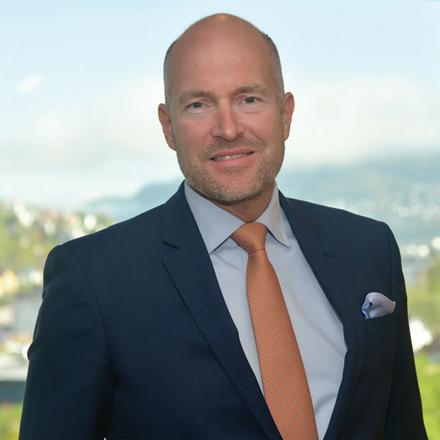
longer journeys, with considerable financial impact and higher emissions. But the company is still confident that it can make a difference.
“I feel privileged to be a part of a business that sets ambitious targets and is willing to go above and beyond,” Mr Jensen concluded. “I find that quite motivating. When my daughter asks me what I’m doing for the environment, I can talk about these things. We will not be judged by our ambitions; we will be judged by our actions. And we must work as a team.”
n
